The NFL draft seemed ripe for a number of notable veteran players to move on to greener pastures. With key quarterbacks and disgruntled franchise players alike on the market for the past several months, it should have been a weekend where stars were swapped alongside draft picks.
If your definition of a notable veteran player is Jamar Taylor, well, you got what you were looking for. The disappointing fourth-year cornerback was part of the draft's final trade, as he was sent to Cleveland so the Dolphins could trade up to the 223rd selection. Taylor, ironically, was once drafted by Miami with a second-round pick they acquired from the Colts in exchange for Vontae Davis, who was a frustrated veteran approaching the end of his rookie deal at the time.
OK, so as it turns out, just about every one of the big-name players who were in line for a possible draft-day trade stayed put. That's disappointing. It's also foolish to think that the end of the draft also will bring an end to the trade rumors. The market may have changed as teams filled some of their needs, but there are still cranky players around the league who would be better off in new locales. Somebody like Evan Mathis, who was cut by the Eagles last June before eventually signing with the Broncos, is a classic example of the type of post-draft player movement we can expect to see around the league.
Now that the furor of the draft has died down, let's hit the reset button on the trade market and the precious few valuable players left in free agency. One of those players signed immediately after the draft, as Brian Hoyer took a one-year deal to back up Jay Cutler in Chicago. Which players still have options left? Where might they head? And which of the players interested in a move might be stuck in their current locale for another year? Let's run around the league, starting in Philadelphia, where all the factors for one move seem to be in place, except for a crucial element ...

Sam Bradford, QB, Eagles
Philadelphia decided to trade for Carson Wentz less than two months after signing Bradford to a two-year contract, a move that very clearly angered the former first overall pick. Even if Wentz isn't ready to play, Bradford is now going to spend the next year looking over his shoulder. Eagles fans probably weren't going to chant for Chase Daniel if Bradford struggled early in the year, but they're certainly going to shout for Wentz, especially given the furor with which Philly fans reacted to Bradford's public trade request.
Nothing about the Bradford situation feels tenable or helpful to either side. The Eagles would likely take back the Bradford deal if they could, and while he's probably a better short-term option than Daniel, the Eagles would do well to get Bradford's salary off their cap for 2017. They already owe $164.1 million on their cap next year without re-signing defensive lineman Fletcher Cox, and while $17 million would come off the cap if Bradford moves on, they could get that figure up to $22.5 million if they moved on from Bradford this year via trade.
The only problem, strangely, is that the Eagles don't want to deal Bradford. General manager Howie Roseman very clearly said that Bradford would remain the team's starter in the immediate aftermath of the Browns trade, and while that could have been a smokescreen to try to ensure the best possible compensation in a trade, the Eagles reportedly rebuffed all trade offers for their nominal starter during the draft. So Bradford doesn't want to be there, the fans don't want him there and other teams want him elsewhere, but Philly is keeping him anyway.
The Eagles may end up finding that there isn't a common ground that makes sense for a trade. It may not be worth it for them to trade Bradford unless they get a Day 2 pick, and with the variety of quarterbacks available on the market (as you'll see in a moment), it's hard to justify making that sort of deal when there are similarly-skilled passers available who don't require any draft pick compensation attached (Ryan Fitzpatrick, for example) or who earn lower salaries (such as Nick Foles). They've consistently overvalued Bradford over the past 14 months, so it's no surprise that they continue to do so now.
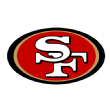
Colin Kaepernick, QB, 49ers
Like with Bradford, the most plausible scenario for San Francisco's quarterback is that he stays put. The two places where Kaepernick made the most sense were Cleveland and Denver, and both of those teams are likely out of the running after drafting Cody Kessler and Paxton Lynch, respectively. The Browns might have interest if Kaepernick were released and available on a bargain-basement deal, but if the 49ers were going to release Kaepernick, they would have done so before his $11.9 million base salary guaranteed in April.
Now, if you want to trade Kaepernick, where does he even fit? The Rams acquired Jared Goff. The Jets drafted Christian Hackenberg and are $2 million over the salary cap after you include their draft pool. The Bills don't have the cap room unless Kaepernick drastically restructures his contract, and even if he does, they already drafted Cardale Jones. There's no real obvious trade destination for Kaepernick at this point, and the 49ers have mostly shrugged at his trade requests. They need a quarterback more than any other team in football, and even if Kaepernick doesn't want to stay in the long term, the best thing for him might be to try to rebuild his value in San Francisco in 2016.
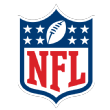
Ryan Fitzpatrick, QB, free agent
While he's not on the trade market, Fitzpatrick is subject to many of the same market forces that affect the other available quarterbacks. His range of options narrowed a bit after draft day, but teams investing in him would be far more likely to acquire him as part of a one-year deal, which makes it easier to swallow the cap hit, since it would be short-term only. The Broncos probably aren't adding another quarterback, but once they lock up outside linebacker Von Miller to an extension, they could clear out enough cap space to sign Fitzpatrick to compete with Lynch and Mark Sanchez. If Robert Griffin were to get hurt in training camp, the Browns probably would look Fitz's way.
The Jets still make the most sense for Fitzpatrick, but they need to clear out cap space to sign their former starter. The one obvious way for them to clear out cap space isn't exactly comfortable ...
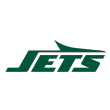
Muhammad Wilkerson, DE, Jets
As much sense as a Wilkerson-for-Kaepernick trade made with the Jets and 49ers swapping first-round picks, it didn't come to fruition, and San Francisco GM Trent Baalke promptly used his first-round pick on a 5-technique end in Oregon's DeForest Buckner. The 49ers have plenty of needs, but defensive end is no longer one of them. The Jets weren't able to find a trade partner for their star defender, and now, if they want draft picks as compensation, those picks won't be showing up until 2017 at the earliest. That's not ideal for a team as veteran-heavy as the Jets.
The Jets can barely afford to pay Wilkerson the franchise tag of $15.7 million this year, and they will be even less enthused about paying him $18.8 million if they try to franchise him again in 2017. That seems to suggest that they're better off trading him now as opposed to losing him for a lesser compensatory pick. The Jets probably aren't getting a first-round pick for Wilkerson, but would they settle for a second-rounder at this point?
If so, there could be a market. The Bears still have a need at defensive end and plenty of cap space to burn, although GM Ryan Pace has been shockingly conservative and efficient with his assets given that he came from New Orleans. The Saints themselves could extend Drew Brees and use the cap space to trade for Wilkerson, although they're already down a fifth-round pick in 2017 after trading up this year. The Colts have $18.8 million in cap space and need to lock up Andrew Luck, but they could structure the deals in a way that would allow them to fit both Luck and Wilkerson under their cap in 2016. Even the Bucs would make sense. The idea that Wilkerson will fetch the Jets a first-rounder, though, still seems unlikely.
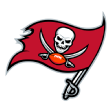
Mike Glennon, QB, Buccaneers
After an offseason full of public suggestions that the Bucs were looking to trade up and unleash their backup quarterback on the league, no trade worth making ever came across GM Jason Licht's desk, and Glennon remains on the roster for at least one more year.
Glennon's market is hurt by the draft more than by a player like Fitzpatrick because part of Glennon's value proposition was that he might be a team's quarterback of the future. If reports that the Bucs wanted a Day 2 pick for their backup were right, it was always going to be hard for a team to justify taking a risk on one year of Glennon instead of using that pick to get as many as four years on an incoming quarterback, and many of the teams who might have been interested in Glennon did just that. At this point, Glennon likely sticks around for one more year in Tampa before free agency and either re-signs with the Bucs or nets them a compensatory fifth-rounder in 2018.

Nick Foles, QB, Rams
Despite his flaws, Foles is probably undervalued by the public because he's so cheap. A team wanting to acquire Foles would have to pay only his $1.8 million base salary in a trade or the league minimum if the Rams chose to cut him. That opens up different windows. The Steelers could feasibly trade for Foles to back up Ben Roethlisberger. The Cowboys could do the same in support of Tony Romo. Those teams just can't afford Fitzpatrick. The Rams have zero leverage because teams know that they don't want to keep Foles around as a third-stringer, and they've been unable to convince other organizations that they need to trade for the former Eagles starter to keep him off of the market. At this point, it's most likely that the Rams release Foles and he heads somewhere as an above-average backup for the minimum in 2016.

Eugene Monroe, OT, Ravens
Monroe's fate with the Ravens was sealed Thursday when Baltimore used its first-round pick on Notre Dame tackle Ronnie Stanley, who profiles as the team's left tackle of the future. Monroe's shoulder still isn't 100 percent and the Ravens may not be able to trade him until he passes a physical, but the goal would be to get something for a player who got a five-year, $37.5 million deal as recently as March 2014. Any team acquiring Monroe would be picking him up on a three-year, $20 million deal with no guaranteed money; that's a friendly contract if a team is looking for a left tackle.
Again, the Bears make total sense here given their cap space and total paucity of options at left tackle, where they'll likely start Charles Leno again in 2016. The Panthers are suddenly flush with cap space after cutting Josh Norman and could take a flier on revitalizing Monroe's career, just as they did with Michael Oher last year. The Giants badly need offensive line help and somehow still have $21 million in cap space. Even the Bucs could be in play. The Ravens would realize only $2.1 million in savings by releasing Monroe, so if they can't find a trade partner, they might just keep him and let Stanley start his career as a guard.
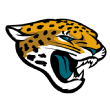
Luke Joeckel, OT, Jaguars
As the second overall selection, Joeckel was the highest-selected player from the 2013 draft whose fifth-year option for 2017 wasn't picked up by his team on Monday. It's hard to really argue with the move, too: Joeckel has failed to develop during his time in the pros, and the Jags made a shrewd, low-risk signing of Kelvin Beachum this offseason to begin the process of moving on from GM Dave Caldwell's first draft pick.
If the Jags are going to move on from Joeckel after this season, it makes little sense to keep him on the roster as a swing tackle behind Beachum and Jermey Parnell. Once they've confirmed that Beachum has sufficiently recovered from the torn ACL he suffered last year, the Jags can start shopping Joeckel to teams who might be interested in taking a flier on a player who was once regarded as a future franchise left tackle. The Jags would eat the final $3.5 million of Joeckel's signing bonus as part of the deal, but the acquiring team could take a look at Joeckel for $3.3 million, which is a fair risk. Again, the Bears and Panthers could be in play. I also wonder if a team such as Seattle might be interested, given Tom Cable's tastes in athletic linemen and reclamation projects.

Lightning round
Like the Jags giving up on Joeckel by declining his option, the Browns signaled their lack of interest in sustaining a relationship with Barkevious Mingo by declining the disappointing pass-rusher's fifth-year option. Mingo has just seven career sacks, but teams desperate for edge pressure (like the Cowboys) could pry him away from Cleveland for next to nothing, ... The Cowboys have their own trade candidate in Ronald Leary, who lost his starting job at guard to La'El Collins last season. Leary signed his restricted second-round tender to help create a viable trade market this past week, but no teams bit. It's tough for a team to give away a draft pick to trade for a guy when somebody like Louis Vasquez is still available in free agency, ... Chicago's decision to trade up and draft Georgia edge rusher Leonard Floyd couldn't have made things easier for Willie Young, who reportedly requested a trade in midseason last year. Young wanted a move back to a team that played a 4-3, and given that he'll make just $2.5 million as part of any trade, he would be another low-cost, high-upside option. ... The 49ers still appear to be in limbo with un-retiring right tackle Anthony Davis, who also may want to continue his career as far away from Baalke as possible. Davis can't play on the left side, which drops his value some, but he's a low-risk option for a team such as the Giants. ... Washington might very well follow up the decision to draft Josh Doctson by cutting one of their starting receivers, each of whom are in the final year of their respective deals. While both DeSean Jackson and Pierre Garcon are free agents in 2017, Doctson was drafted to take over then. Of the two, he's more likely to step in for Garcon, which makes the former Colts regular more likely to be expendable.
